Home » Posts tagged 'saudi arabia' (Page 7)
Tag Archives: saudi arabia
US Surpasses Saudi Arabia, Russia To Become World’s Top Oil Exporter
US Surpasses Saudi Arabia, Russia To Become World’s Top Oil Exporter
The US has once again surpassed Saudi Arabia and Russia to reclaim the No. 1 spot as the world’s largest oil exporter, according to data from the International Energy Agency.
Record shale production helped the US ship nearly 9 million barrels of crude and other oil products a day in June, surpassing Saudi Arabia, Bloomberg reports. And as more companies build the infrastructure necessary to transport oil from fields in Texas and New Mexico to the coast, the amount of oil exported by the US is expected to climb.
The increase in US crude exports in June was helped by a surge in crude-oil shipments to more than 3 million barrels a day, according to the IEA report. Meanwhile, Saudi Arabia was cutting exports in line with the OPEC+ agreement on production cuts, while Russia’s output was hampered by the Druzhba pipeline crisis.
Saudi Energy Minister Sees No Radical Change in Oil Policy
As OPEC members adhere to an agreement to cut production for the third year, swelling US output is hampering the cartel’s effort to drain stockpiles and ‘rebalance’ the global energy market in a way that drives up prices.
Rising American output, combined with concerns about global demand fueled by the ongoing US-China trade war have prompted a nearly 20% drop in Brent crude prices – the global benchmark – from the April high.
However, the US’s spot at the top of the global oil-exporting heap already appears to be short-lived. Saudi Arabia appears to have reclaimed the top spot for July and August as hurricanes disrupted US production, while the trade dispute “made it more difficult for shale shipments to find markets,” according to the IEA.
But in the coming months, the US could easily wind up back in the No. 1 spot as American crude exports are expected to climb by one-third from June levels to as much as 4 million barrels a day as new infrastructure is being built to handle more oil flows.
How the U.S. Shattered the Middle East
How the U.S. Shattered the Middle East
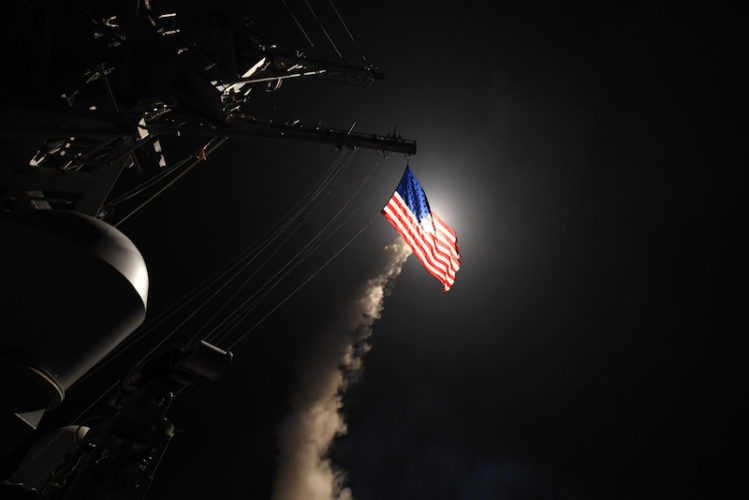
Yemen is a nightmare, a catastrophe, a mess—and the United States is highly complicit in the whole disaster. Refueling Saudi aircraft in-flight, providing targeting intelligence to the kingdom and selling the requisite bombs that have been dropped for years now on Yemeni civilians places the 100,000-plus deaths, millions of refugees, and (still) starving children squarely on the American conscience. If, that is, Washington can still claim to have a conscience.
The back story in Yemen, already the Arab world’s poorest country, is relevant. Briefly, the cataclysm went something like this: Protests against the U.S.-backed dictator during the Arab Spring broke out in 2011. After a bit, an indecisive and hesitant President Obama called for President Ali Abdullah Saleh to step down. A Saudi-backed transitional government took over but governed (surprise, surprise) poorly. Then, from 2014 to 2015, a vaguely Shiite militia from Yemen’s north swarmed southward and seized the capital, along with half the country. At that point, rather than broker a peace, the U.S. quietly went along with, and militarily supported, a Saudi terror-bombing campaign, starvation blockade and mercenary invasion that mainly affected Yemeni civilians. At that point, Yemen had broken in two.
Now, as the Saudi campaign has clearly faltered—despite killing tens of thousands of civilians and starving at least 85,000 children to death along the way—stalemate reigns. Until this past week, that is, when southern separatists (there was once, before 1990, a South and North Yemen) seized the major port city of Yemen, backed by the Saudis’ ostensible partners in crime, the United Arab Emirates. So it was that there were then threeYemens, and ever more fracture. In the last few days, the Saudi-backed transitional government retook Aden, but southern separatism seems stronger than ever in the region.
Saudi Arabia can destroy Iran in 8 hours: Saudi prince
Saudi Arabia can destroy Iran in 8 hours: Saudi prince

BEIRUT, LEBANON (6:20 P.M.) – A Saudi prince posted on Twitter Thursday that Saudi Arabia’s military could destroy Iran in eight hours if they wanted to.
Prince Abdullah bin Sultan bin Nasser Al-Saud tweeted a video on Thursday that showed some of the Gulf kingdom’s F-15 warplanes in comparison to Iran’s F-4 Phantom jets.

“السعودية تستطيع تدمير #ايران في٨ ساعات”
طبعا هذا مقطع من عامان
أي قبل طائرات ال ف١٥ اس اي وقبل شراء وتطوير منظومات الدفاع الجوي والقوات البحرية والبرية والجوية بصواريخ متطورة ومتقدمة.
وما خفي اعظم..
لا توجد اي قوة في العالم تستطيع ان تقف في وجه وحدتنا وعزمنا ونهضتنا والحمدلله.
In quotations, the prince tweeted, “Saudi Arabia can destroy #Iran in 8 hours”, he would later add, “What is hidden is greater. There is no force in the world that can stand up to our unity, our resolve, our renaissance and thank God.”
The Saudi prince cited an earlier report on Saudi Arabia’s military capabilities.
“Iran has no fighter jets that can reach Saudi Arabia,” according to an analyst interviewed on Channel 24 featured in the tweeted video.

Saudi Arabia has for the past years been America’s #1 arms purchaser, with up to 70 percent of the kingdom’s arsenal now coming from the United States, according to the Stockholm International Peace Research Institute (SIPRI).
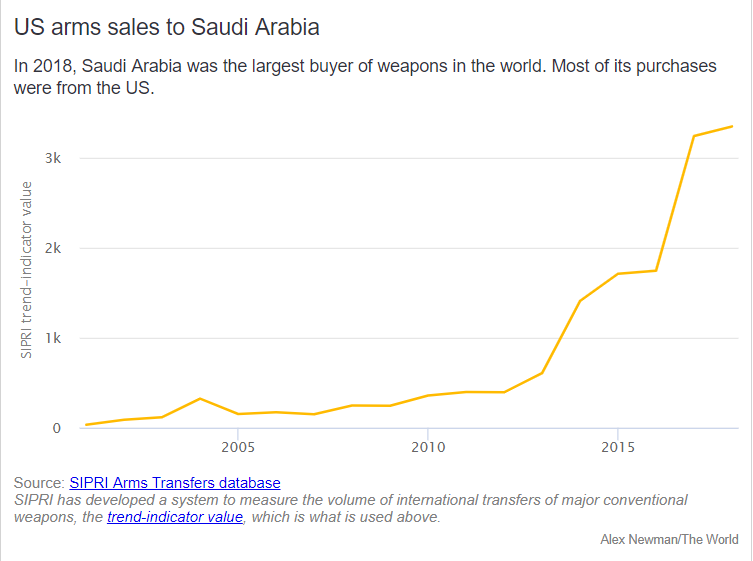
The analyst added Iran’s air force is outdated and weak, highlighting things like Iran’s old aircraft and limited number of Soviet-era MiG-29 fighter jets.
…click on the above link to read the rest of the article…
Global Warming and U.S. National Security Diplomacy
Global Warming and U.S. National Security Diplomacy

Old power station, West Linn, Oregon. Photo: Jeffrey St. Clair.
Control of oil has long been a key aim of U.S. foreign policy. The Paris climate agreements and any other Green programs to reduce the pace of global warming are viewed as threatening the aim of dominating world energy markets by keeping economies dependent on oil under U.S. control. Also blocking U.S. willingness to help stem global warming is the oil industry’s economic and hence political power. Its product is not only energy but also global warming, along with plastic pollution.
This fatal combination of the national security state’s mentality and oil industry lobbying threatens to destroy the planet’s climate. The prospect of raising temperatures and sea levels along the coasts while inland regions suffer drought is viewed simply as collateral damage to the geopolitics of oil. The State Department is reported to have driven out individuals warning about global warming’s negative impact.[1]
The only attempts to restrict oil imports are the new Cold War trade sanctions to isolate Russia, Iran and Venezuela. The aim is to increase foreign dependence on U.S., British and French oil, giving American strategists the power to make other countries “freeze in the dark” if they follow a path diverging from U.S. diplomatic aims.
It was the drive to control the world’s oil trade – and to keep it dollarized – that led the United States to overthrow the Iranian government in 1953, George W. Bush and Dick Cheney to invade Iraq in 2013, and most recently for Donald Trump to isolate Iran while backing Saudi Arabia and its Wahabi foreign legion in Syria, Iraq and Yemen. Sixty years earlier, in 1953, the CIA and Britain joined to overthrow Iran’s elected President Mohammad Mosaddegh to prevent him from nationalizing the Anglo-Iranian Oil Company. A similar strategy explains U.S. attempts at regime change in Venezuela and Russia.
…click on the above link to read the rest of the article…
Hundreds Of US Troops Begin Deployment To Saudi Arabia To Counter Iran
Hundreds Of US Troops Begin Deployment To Saudi Arabia To Counter Iran
The deployment of hundreds of US troops to Saudi Arabia as part of a build-up to counter Iran in the region amid soaring tensions and a dangerously ratcheting “tanker war” has begun, TheWall Street Journal reported Friday night.
The Pentagon first revealed on Wednesday that 500 of the 1000 total troops announced by the White House last month to bolster US presence in the Middle East would be heading to the Prince Sultan Air Base, situated in the desert east of Riyadh.
Crucially, Prince Sultan Air Base has been closed to American troops since the rapid fall of Baghdad and overthrow of Saddam at the start of the 2003 US invasion of Iraq.
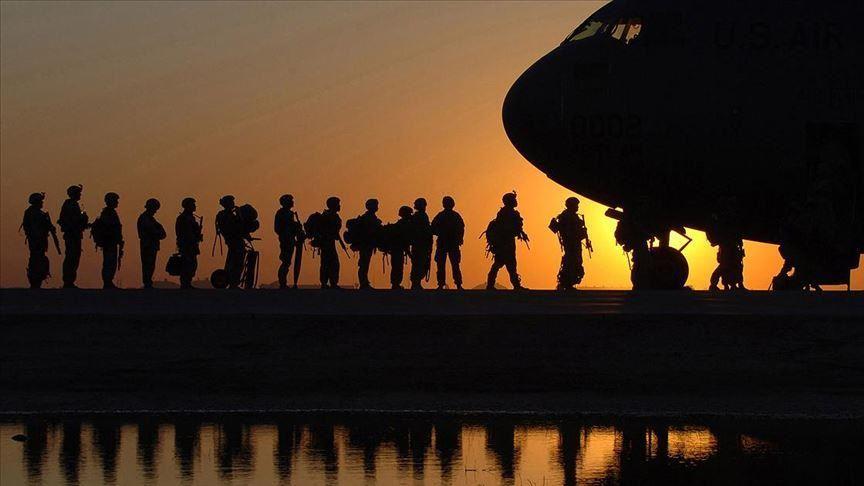
The WSJ report confirms the new deployment is en route within 24 hours after Iran’s elite IRGC seized two British tankers in the Strait of Hormuz. One tanker has already released, but the other – British-flagged Stena Impero and its crew – is still being detained.
According to the report:
The military already has begun to deploy more than 500 U.S. service members to Prince Sultan Air Base, about 150 kilometers southwest of Riyadh, officials said. Saudi officials didn’t respond to requests for comment. Officials from U.S. Central Command, which overseas the Middle East, declined to comment.
It’s the latest sign that the Trump Administration is continuing its military buildup in the region, which has so far included fighter jets, B-52 bombers, an aircraft carrier strike force, Navy destroyers and – of course – more troops.
Citing two senior defense officials, CNN had previously reported that a small number of troops were already in the area, and initial preparations were being made for a Patriot missile defense battery as well as improvements to a runway and airfield. US security assessments have determined that the area would be ideal for US troop deployment because it would be difficult for Iran to target with missiles.
…click on the above link to read the rest of the article…
UAE Withdraws From Yemen
UAE Withdraws From Yemen
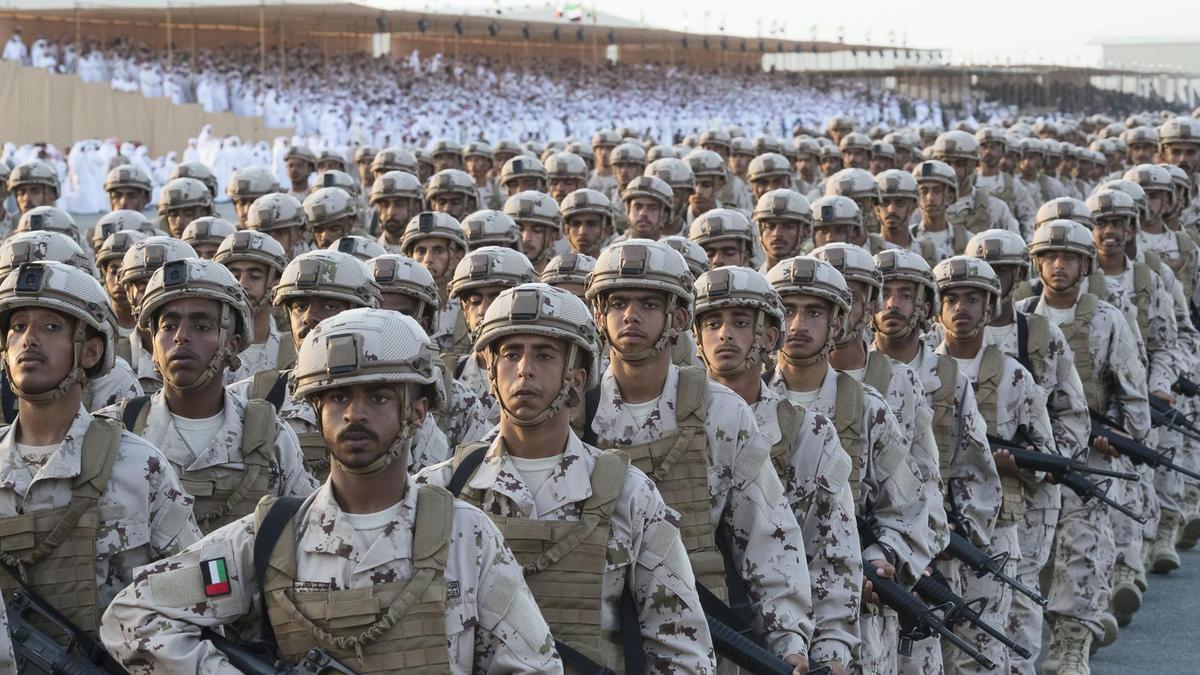
Christopher Pike for the Crown Prince Court-Abu Dhabi
A United Arab Emirates decision to withdraw the bulk of its forces from Yemen shines a spotlight on hard realities underlying Middle Eastern geopolitics.
The pullback suggests that the UAE is preparing for the possibility of a US military confrontation with Iran in which the UAE and Saudi Arabia could emerge as prime battlegrounds.
It also reflects long-standing subtle differences in the approaches of Saudi Arabia and the UAE towards Yemen.
It further highlights the UAE’s long-standing concern for its international standing amid mounting criticism of the civilian toll of the war as well as a recognition that the Trump administration’s unquestioning support may not be enough to shield its allies from significant reputational damage.
The withdrawal constitutes a finetuning rather than a reversal of the UAE’s determination to contain Iran and thwart political Islam witness the Emirates’ involvement in the Libyan civil war and support for renegade field marshal Khalifa Belqasim Haftar as well as its support for the embattled Sudanese military and autocrats like Egyptian general-turned-president Abdel Fattah al-Sisi.
While the UAE may have withdrawn the bulk of its troops from key regions of Yemen, it leaves behind Emirati-trained local forces that will continue to do its bidding. The withdrawal, moreover, is not 100 percent with the UAE maintaining its Al-Mukalla base for counterterrorism operations.
The UAE’s commitment to assertive policies designed to ensure that the small state can continue to punch above its weight are also evident in its maintenance of a string of military and commercial port facilities in Yemen, on the African shore of the Red Sea, and in the Horn of Africa as well its hard-line towards Qatar and rivalry with Turkey.
…click on the above link to read the rest of the article…
Egypt Seizes Tanker Carrying Iranian Crude
Egypt Seizes Tanker Carrying Iranian Crude
Tehran’s threats of retaliation against the UK for seizing a tanker carrying Iranian crude oil for export have prompted a British vessel to shelter in the Gulf, but the rest of the world doesn’t seem to be taking them too seriously.
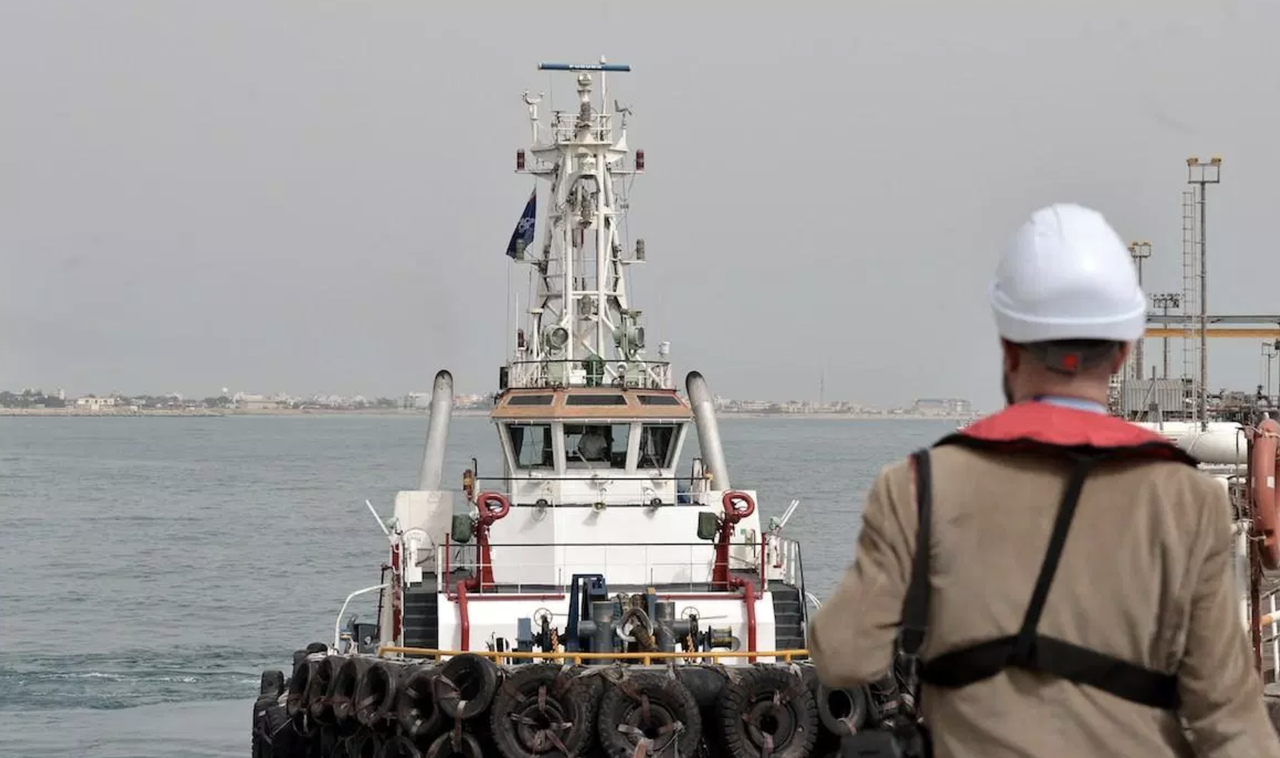
Citing local press reports, Middle East Monitor said Tuesday that a Ukrainian tanker carrying Iranian oil as it passed through the Suez Canal ten days ago was seized by the Egyptian government, just as Egypt’s State Security Criminal Court was sentencing six people to lengthy jail terms allegedly for spying for Iran.
Those defendants have all been sentenced to between 15 and 25 years in jail, a $30,000 fine and the confiscation of their computers and phones.
Egyptian Al-Azhar Professor Alaa Moawad, who was present at the trial on Sunday, was accused of harming Egypt’s national interests and receiving money to spread Iranian Shiism in Sunni Egypt by launching a website, issuing publications and attracting recruits.
British Forces Seize Oil Tanker for Busting Syria Sanctions
Egypt is a staunch ally of the US, and as a Sunni-majority country, would naturally align with the UAE and Saudi Arabia in their efforts to contain Iran. Egypt also supports the Saudi-backed coalition in Yemen that is fighting to retain control in that country’s brutal civil war. Cairo has condemned the Houthis for the recent spate of attacks on Saudi infrastructure that have inflamed tensions in the region.
Washington and Riyadh have blamed Iran for a series of attacks on oil tankers in and around the Strait of Hormuz, though there is somedisagreement on this subject.
…click on the above link to read the rest of the article…
British Oil Tanker Seeks Shelter Over Fears It Could Be Seized By Iran
British Oil Tanker Seeks Shelter Over Fears It Could Be Seized By Iran
After a former IRGC commander exhorted his government to take a British oil tanker hostage following the seizure by Royal Marines last week of a vessel hauling Iranian crude, an oil tanker run by British Petroleum is sheltering in the Persian Gulf over fears it could soon be seized by Iran in a tit-for-tat response, Bloomberg reports.
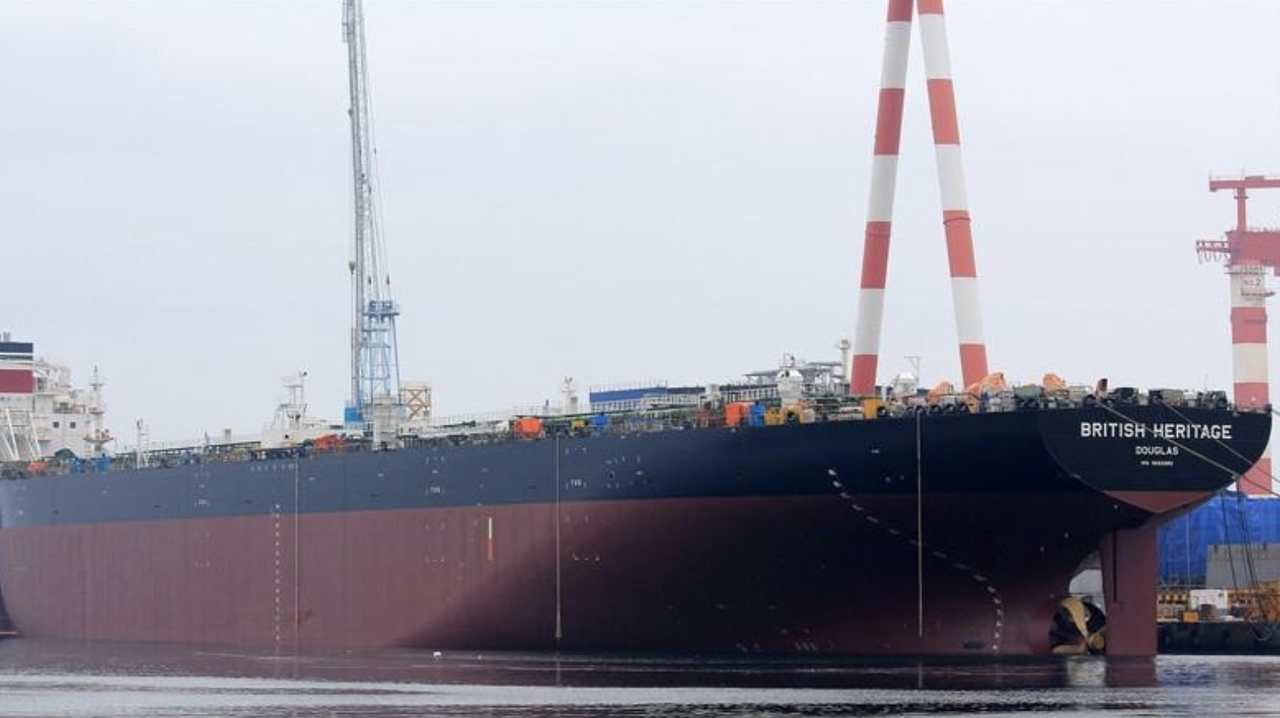
British Heritage
The tanker, which is named ‘British Heritage’, is able to haul about 1 million barrels of crude. It had been sailing toward Iraq’s Basrah oil terminal when it made an abrupt U-turn over the weekend.
The ship is now hanging out near Saudi Arabia’s coast because BP is reportedly worried that the vessel could be targeted if Iran seeks to retaliate for the seizure of the tanker Grace 1 on Thursday.
The Grace 1 was seized after being caught transporting Iranian crude, in breach of sanctions.
British Heritage, registered in the Isle of Man and flying under the British flag, had been chartered by Royal Dutch Shell Plc to transport crude from Basrah to northwest Europe. However, it never collected its cargo and the booking was canceled.
Of course, the ship won’t be able to pass through the Strait of Hormuz, the chokepoint through which about 1/3 of global oil shipped by sea moves, without sailing close to Iran’s coast. It’s unclear how long the ship will be sheltering for.
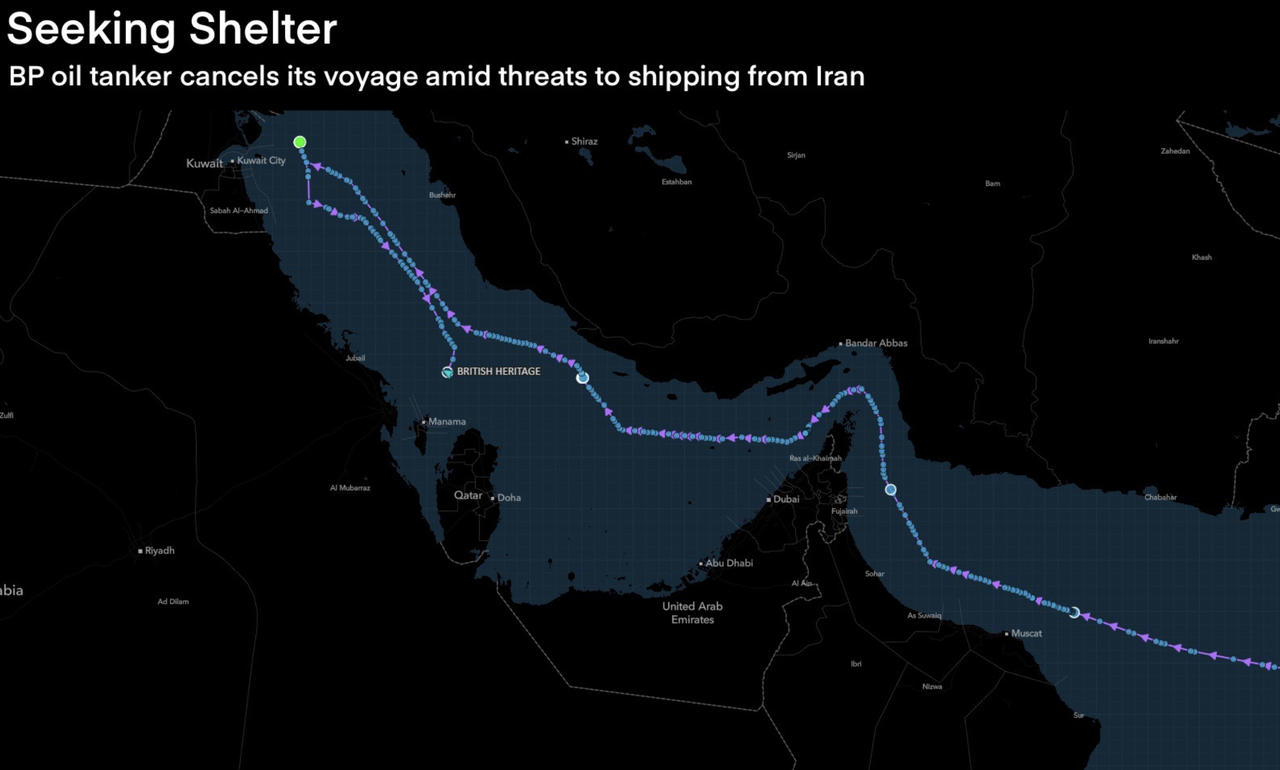
Iran’s deputy foreign minister said on Sunday he considered the seizure of Grace 1 to be an ‘act of piracy,’ while a former leader of Iran’s Revolutionary Guard said the Islamic Republic should take a British tanker in response.
While it’s owners apparently believe the British Heritage to be ‘safe’ in Saudi custody, we wouldn’t be surprised if it was conveniently and mysteriously ‘bombed’ like the handful of other tankers over the past few months – an incident that the UK and KSA would have no problem pinning on the Iranians.
West’s Moral Bankruptcy Exposed
West’s Moral Bankruptcy Exposed
The moral bankruptcy of Western powers was exposed – inadvertently – with the recent publication of three separate news reports. Taken together the reports out last week illustrate the rank hypocrisy of Western governments.
Also, the way that the reports were prioritized or left disconnected demonstrates how the Western mainstream media serves as a dutiful propaganda service for state and corporate power.
First there was the Dutch-led inquiry into downing of the Malaysian MH17 airliner, which put the finger of blame on Russia for the disaster in 2014 when all 298 people onboard were killed.
That nearly five-year investigation has never provided any credible proof of Russian culpability, yet the Dutch-led investigators known as the Joint Investigation Team (JIT) continually level allegations that Russia supplied an anti-aircraft missile to Ukrainian rebels who purportedly blasted the Boeing 777 out of the sky.
Despite its evident failures of due process, nonetheless Western governments and media have lent the JIT allegations (slanders) undue credibility. The US, Britain and other NATO members last week called on Russia to comply with the JIT “investigation”, smearing Moscow as guilty of causing the MH17 deaths.
However, Malaysia’s Prime Minister Mahathir Mohamad denounced the report as “ridiculous hearsay” aimed at “scapegoating Russia”. Tellingly, his comments were not widely reported in Western media.
For its part, Russia has vehemently rejected allegations of involvement in the MH17 disaster, as have pro-Russian Ukrainian rebels. Russia’s repeated offers of contributing information to the probe have been rebuffed by the Dutch-led JIT. By contrast, Russia’s own investigation has uncovered credible radar and forensic evidence that an anti-aircraft missile fired at the passenger jet actually came from military forces under the Kiev regime’s command. Russia’s evidence has been steadfastly ignored by Western media reports.
…click on the above link to read the rest of the article…
Persian Gulf oil export peak after tanker attacks?
Persian Gulf oil export peak after tanker attacks?
Tankers holed and burning in the Gulf of Oman are not a good sign for future oil exports from the Persian Gulf.


https://in.reuters.com/article/mideast-tankers-facts/latest-on-suspected-attacks-on-tankers-in-gulf-of-oman-idINKCN1TE1H3
Oil exports from the Persian Gulf have been peaking in the last 3 years 2016-2018 at around 22.3 mb/d. That was before the US sanctions on Iran were tightened in the 1st half of 2019.

Exports are defined here as the difference between oil production (crude oil, condensate and NGLs) and oil consumption with latest data taken from the BP Statistical Review published 11/6/2019.
https://www.bp.com/en/global/corporate/energy-economics/statistical-review-of-world-energy.html
Let’s go through this country by country with a focus on the period since 2005 when global (conventional) crude oil production started to peak.

The drop in Saudi exports after 2005 happened in 2 phases: first, production decline until mid 2007 – which contributed to the oil price shock in 2008 and then secondly lower demand during the 2009 financial crisis. The warnings in Matt Simmons’ book “The coming Saudi oil shock and the world economy” has materialized to some extent without this being recognised by governments, the private sector, the media and the public at large.
30/10/2018 Saudi Update October 2018 http://crudeoilpeak.info/saudi-update-october-2018
5/7/2018 Saudi Arabia was supposed to pump almost 14 mb/d in 2018
http://crudeoilpeak.info/saudi-arabia-was-supposed-to-pump-almost-14-mbd-in-2018

Sanctions imposed on Iraq after Desert Storm were replaced by an oil for food program started in 1995. It limited Iraq’s oil exports to around 2 mb/d. The objective of the 2003 Iraq war was remove this cap. It was only in 2011 that this export level was exceeded.

…click on the above link to read the rest of the article…
Saudi King Urges Global Coalition To “Use All Means To Stop Iran” At Emergency Summit
Saudi King Urges Global Coalition To “Use All Means To Stop Iran” At Emergency Summit
Perhaps sensing that the US “maximum pressure” campaign against Iran is fast deflating, with even ultra-Hawk John Bolton late this week saying American military build-up had successfully “deterred” imminent Iran threats – suggesting the crisis has been averted – the Saudis are now going on the offensive. Image source: AP via Al Jazeera
Saudi Arabia’s aging King Salman went on an anti-Iran tirade during an emergency meeting of Arab leaders hosted in Mecca on Thursday, saying the Shia country is the greatest threat to global security for the past four decades. He also echoed past US and Israeli charges that Tehran is currently developing nuclear and ballistic missiles in order to threaten its neighbors and extend its influence over the region.
He said Iran’s leaders were “harboring global and regional terrorist entities and threatening international waterways.” He called for “using all means to stop the Iranian regime” from its regional “interference”. Iran for its part rejected these as “baseless accusations” and has denied it had any role in a spate of recent “sabotage” attacks in the Gulf region.
The king further condemned Iran’s tactics to disrupt maritime trade and global oil supplies in “glaring violation of UN treaties” following Riyadh’s blaming Iranian operatives for using underwater mines to attack and “sabotage” four tankers near the Strait of Hormuz weeks ago, two of which were Saudi flagged.
“The Iranian regime has been interfering in other countries’ affairs, developing their nuclear programs and threatening international navigation,” King Salman said during his speech, according to a translation by Saudi-owned Al-Arabiya.
The Struggle Is The Meaning 318
The Struggle Is The Meaning 318
There is no conceivable interest of the ordinary people of the Western world being served by the crazed decision of their governments to firmly take the Sunni side in the Sunni/Shia tensions of the Islamic world, and to do so in a fashion which deliberately exacerbates points of armed conflict across the Middle East.
It is even more extraordinary that, in doing so, the West is deliberately forwarding the interests of two nations which have philosophies that are entirely antithetical to the supposed tenets of Western philosophy. Those states are Saudi Arabia, an unrepentant despotism, which promotes and finances a theocratic ideology directly responsible for the major terrorist attacks on the West, and Israel, which is now an openly apartheid state. The USA/Saudi/Israel alliance is underpinned by the identification of a common enemy in Iran and other Shia communities.
Of course the patent absurdities of the alliance point directly to the fact that the real motive is entirely different; this is all about the financial ties of the 1% and the permanent interest of the military industrial complex and their financiers in stoking the flames of war.
Which is an opportune moment to mention – as I have several times over the years – that if I had to recommend one single book to illuminate your view of the world it would be Imperialism by J A Hobson. His brilliant perception that empire had been a net disbenefit to the ordinary people of both the colonial power and the colonised, with the advantages reaped purely by the military, financial, armaments and political classes, and his groundbreaking methods of proving his thesis, is one of the great works of human thought. Lenin plagiarised Hobson extensively.
…click on the above link to read the rest of the article…
The Mysterious “Sabotage” of Saudi Oil Tankers: a Dangerous Moment in Trump’s Escalating Conflict With Iran
The Mysterious “Sabotage” of Saudi Oil Tankers: a Dangerous Moment in Trump’s Escalating Conflict With Iran
Saudi Arabia’s claim that two of its oil tankers have been sabotaged off the coast of the UAE is vague in detail – but could create a crisis that spins out of control and into military action.
Any attack on shipping in or close to the Strait of Hormuz, the 30-mile wide channel at the entrance to the Gulf, is always serious because it is the most important choke point for the international oil trade.
A significant armed action by the US or its allies against Iran would likely provoke Iranian retaliation in the Gulf and elsewhere in the region. Although the US is militarily superior to Iran by a wide margin, the Iranians as a last resort could fire rockets or otherwise attack Saudi and UAE oil facilities. Such apocalyptic events are unlikely – but powerful figures in Washington, such as the national security adviser John Bolton and secretary of state Mike Pompeo, appear prepared to take the risk of a war breaking out.
Bolton has long publicly demanded the overthrow of the Iranian government. “The declared policy of the United States should be the overthrow of the mullahs’ regime in Tehran,” he said last year before taking office.
“The behaviour and the objectives of the regime are not going to change and, therefore, the only solution is to change the regime itself.”
Bolton and Pompeo are reported to have used some mortar rounds landing near the US embassy in Baghdad in February as an excuse to get a reluctant Pentagon to prepare a list of military options against Iran. These would include missile and airstrikes, but it is unclear what these would achieve from the US point of view.
…click on the above link to read the rest of the article…
OPEC Collapse Likely, Warns Iran’s Oil Minister
OPEC Collapse Likely, Warns Iran’s Oil Minister
Iran has warned that OPEC might “collapse” due to the “unilateral actions” by some of its members, in a clear jab at Saudi Arabia.
“Iran is a member of OPEC because of its interests, and if other members of OPEC seek to threaten Iran or endanger its interests, Iran will not remain silent,” Oil Minister Bijan Zanganeh said on Thursday, as quoted by the ministry’s official news agency, SHANA.OPEC headquarters, image via WSJ
Following the US declaring its “maximum pressure” campaign to take Iran crude exports down to zero, and ending the waiver program, Saudi Arabia and its close ally UAE pledged they will maintain appropriate supply for the markets to compensate for the shortfall — in accordance with President Trump’s demands that OPEC do more to curb rising oil prices.
Zanganeh had issued the statements warning of the oil cartel’s collapse on the occasion OPEC Secretary-General Mohammad Barkindo visit to an oil and gas exhibition in the Iranian capital. Barkindo had sought to assure the Iranians that “OPEC tries to depoliticize oil” by saying at the exhibition, “I have told my colleagues at OPEC that you must leave your passports home when coming to this organization,” according to Reuters.
Iran last month also accused Saudi Arabia and its allies of exaggerating their surplus oil capacity, to which the oil minister followed this week by saying “any threat from member states won’t go unanswered.”
Meanwhile the OPEC Secretary-General, in a further attempt to calm fears of an unraveling OPEC, told reporters, “It is impossible to eliminate Iranian oil from the market.” He added, “We have faced troubles in the OPEC in the last 60 years, but we have resolved them by unity.”
Why An OPEC Oil Supply Surge Won’t Happen
Why An OPEC Oil Supply Surge Won’t Happen

The end of the Iranian sanction waivers by the Trump Administration has put oil traders on edge.
While most analysts are optimistic about OPEC leader Saudi Arabia being able to fill the gap left by lower Iranian oil exports, reality could be totally different. Looking at the ongoing discussions between OPEC’s two key members, Saudi Arabia and the UAE, there are no real signs that the Kingdom of Oil will be willing to increase its overall oil production to keep prices at the pump low in oil importing nations.
The real crux at present is what the market will do when, on the 2nd of May, the Iran sanction waivers end. History has shown that oil importers are very well equipped to take mitigating measures to counter the effects of the Iran sanctions. Saudi Arabia, and others, will have to be very careful to stabilize the market without falling into a Trumpian trap, which could result in an oversupply situation in the short term.
At present, all signs point to higher oil prices. If no real additional oil is brought onto the market, shortages will become visible within months. Statements made by U.S. president Trump and U.S. Secretary of State Mike Pompeo that Saudi Arabia and the UAE will add supplies to counter the loss of Iranian volumes are currently only wishful thinking, and not based on any hard promises from Riyadh or Abu Dhabi.
OPEC’s leaders are in a powerful position to react to Trump’s calls for additional volumes and lower prices as they wish. Washington’s strategy may well have backfired, as U.S. shale will not be able to supply the markets with the necessary crude grades. At the same time, national oil companies are willing to take a backseat, as long as OPEC+ production cuts are in place.
…click on the above link to read the rest of the article…



